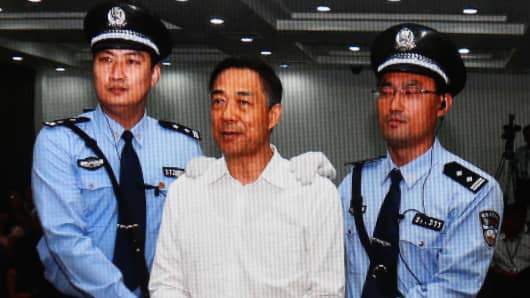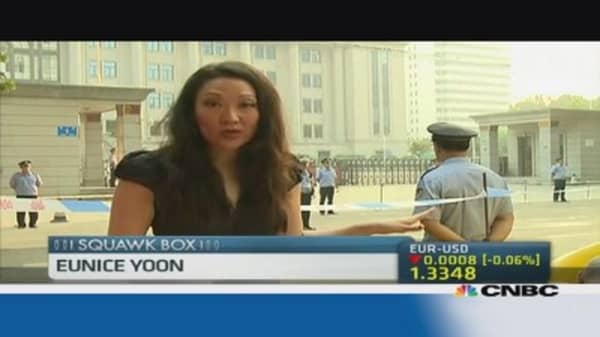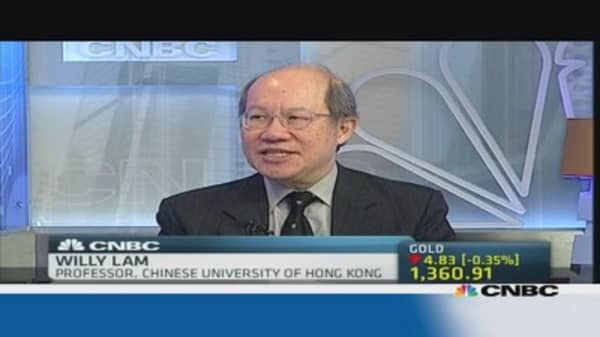The widely-publicized trial of disgraced Chinese politician Bo Xilai got underway in the city of Jinan on Thursday, with a guilty verdict for charges of corruption and the abuse of power widely seen as a done deal.
The hearing of Bo, the former Communist Party chief of Chongqing in southwestern China, is the most politically-charged trial of a Chinese politician in more than three decades and follows a scandal that rocked the establishment last year.
Analysts say Bo, a high-profile former senior politician, is almost certain to be found guilty in a verdict that was most probably decided before the trial began.
(Read more: China's fallen former high-flyer Bo to stand trial Thursday)
"Bo is expected to be found guilty," Willy Lam, professor of history at the Chinese University of Hong Kong, told CNBC Asia's "The Call."
"For such sensitive cases, the wording of the sentence is decided by the standing committee of the politburo, so the judges already know the sentence before the trial started," he added, referring to the decision-making body of the Chinese Communist Party.






